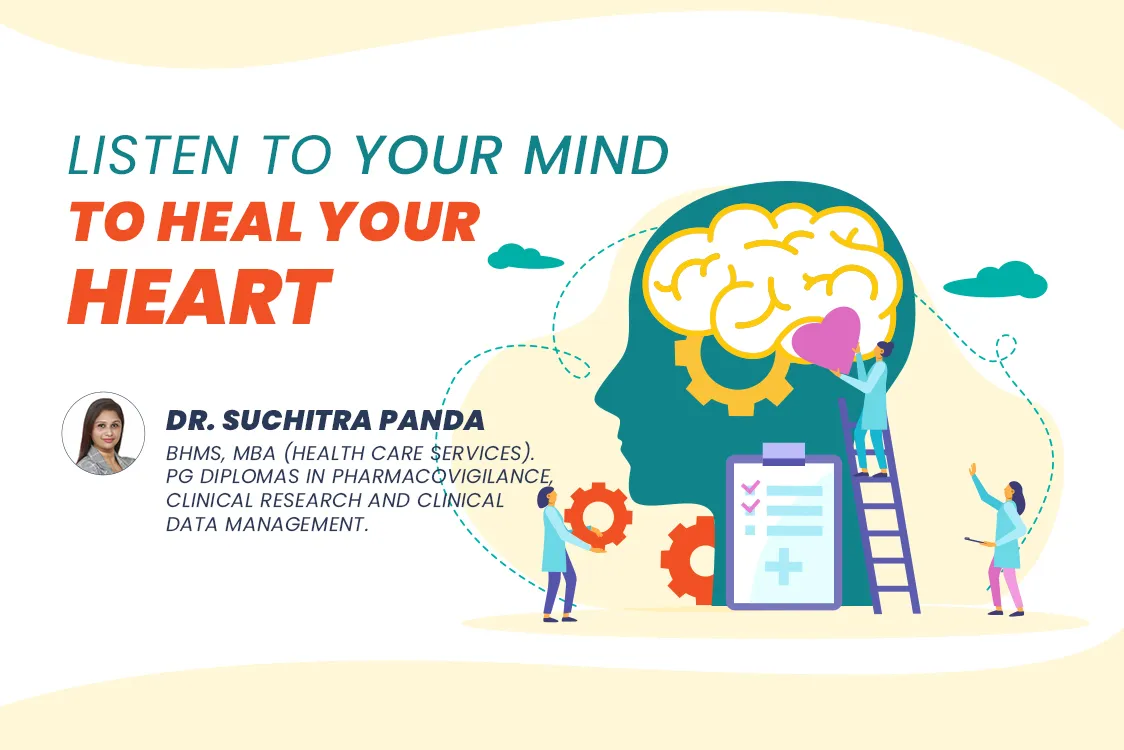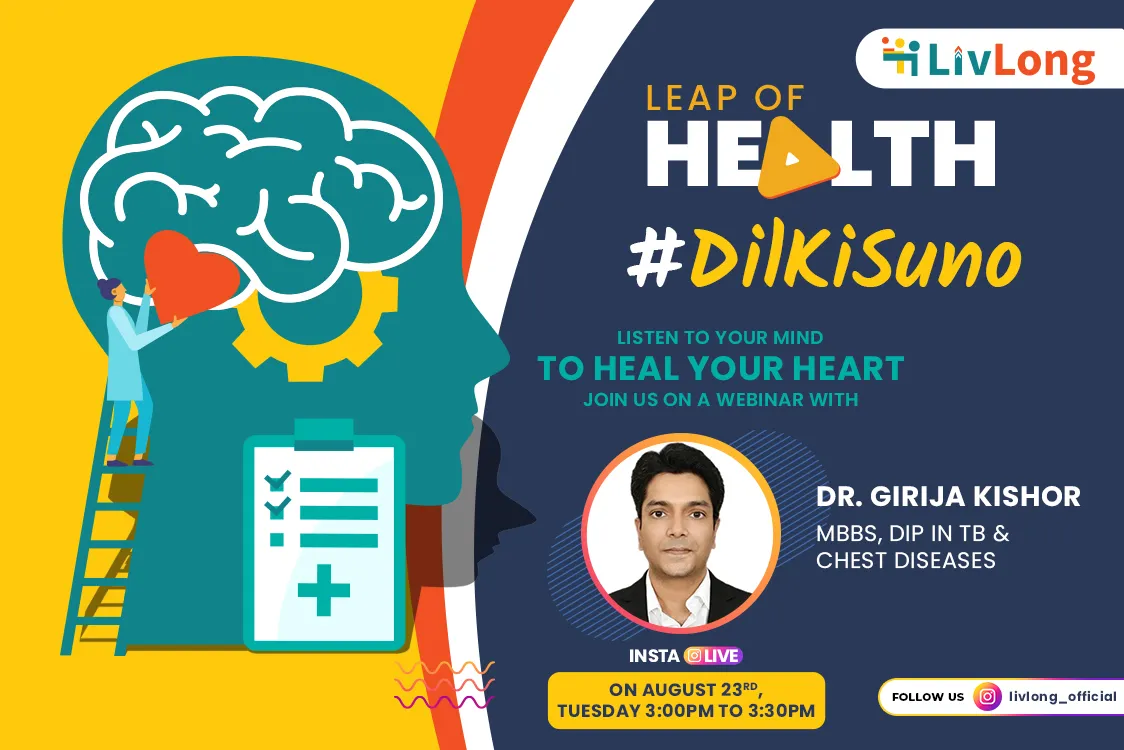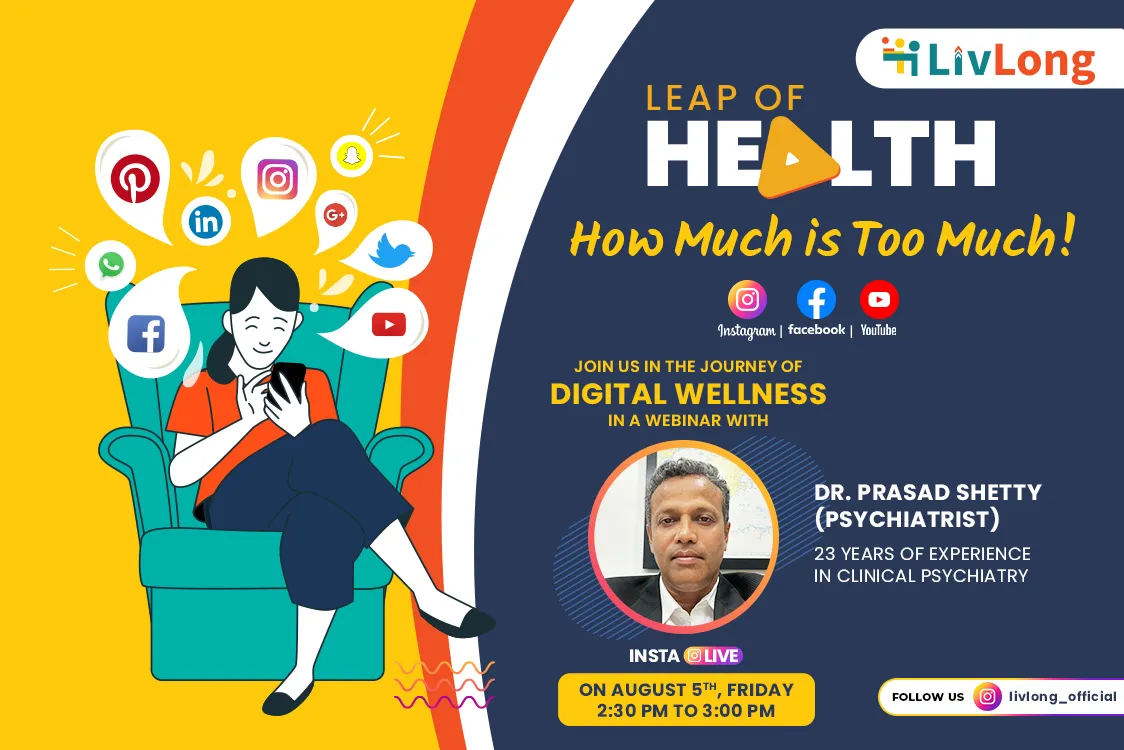The Heart and Brain are almost 14 inches apart from each other but are a part of each other’s physiology1.
Both the organs communicate with each other through the circulatory system by means of the muscular walls around the heart. The brain commands the release of hormones for the body to react, these commands are synthesized by the blood vessel receptors and the nerve endings that connect the brain to the heart. These nerves send messages to the muscle tissue of the heart to contract or relax.
We have always believed that heart health is affected by smoking, Hypertension, High Cholesterol; however, a study published in the Interheart study2 clearly shows that stress is also responsible for about one-third of heart attacks and strokes.
Physiologically, we have a heart attack when an unstable plaque ruptures inside a coronary artery. When our mind is under emotional and mental stress, it enters the “fight-or-flight” response and the brain starts releasing biochemical compounds like adrenaline, which elevates the heart rate and blood pressure. These further commands the release of neuropeptide Y by the platelets that can cause spasm and coronary artery occlusion.
When the day-to-day stress becomes very severe, then it gets evidently associated with increased risk of heart attack and stroke. The neurochemical pathways that responsible for causing atherosclerosis or cardiovascular disease have recently started getting recognized. They consist of some close communication between the central nervous system, heart, adrenal gland, and kidneys, which are responsible for releasing and activating stress hormones such as cortisol and neuropeptides.
There is evidence3, which demonstrates a direct relationship between emotional stressors and risk of cardiovascular events identifying a direct association between amygdala reactivity (brain).
There are few practices, which might help to reduce day-to-day stress and give us a healthy heart:
• Meditation: Relaxation response4 is an effective therapeutic intervention that counteracts the adverse clinical effects of stress in disorders including hypertension
• Yoga mostly helps to raise levels of γ-aminobutyric acid (GABA), in our brains, which instead helps in stabilising mood and reducing stress
• Mirthful Laughter: Releases β-endorphins during a good laugh, which binds to receptors on the surface of the vascular endothelium to release nitric oxide, a molecule with multiple cardioprotective properties5.
• Hugging: There is research available that oxytocin6, which is a hormone and neurotransmitter is released from brain when we hug or touch, this can evidently lower blood pressure and stabilise heart rate.





